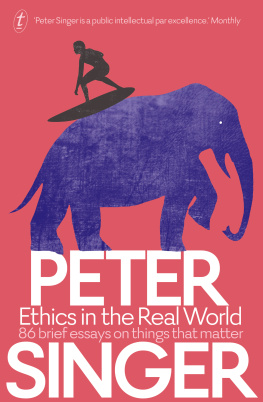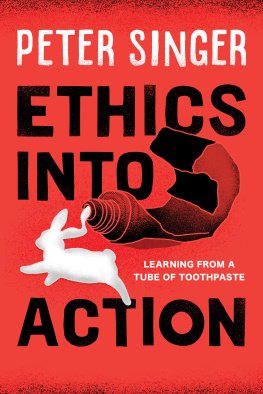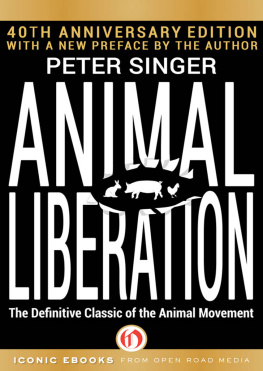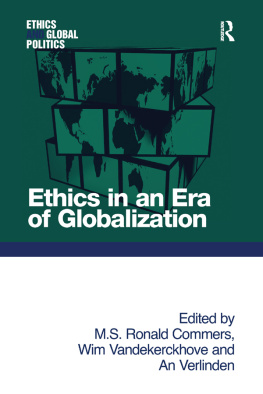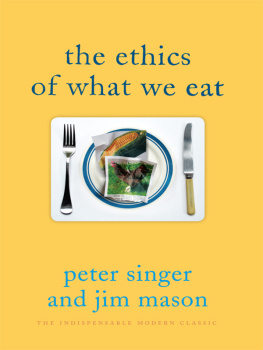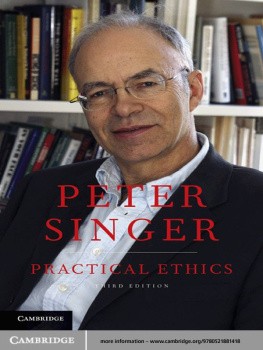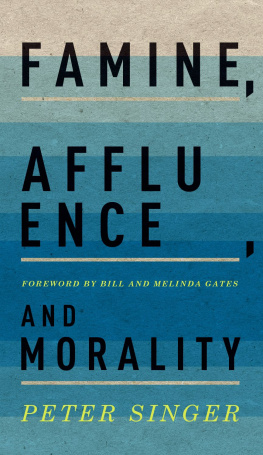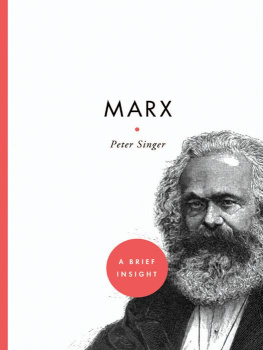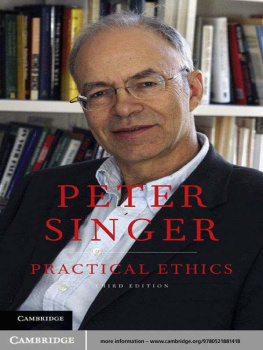Praise for One World: The Ethics of Globalization and Peter Singer
Selected as an outstanding book by University Press Books for Public and Secondary School Libraries
Many people have written about the economic meaning of globalization; in One World Peter Singer explains its moral meaning. His position is carefully developed, his tone is moderate, but his conclusions are radical and profound. No political theorist or moral philosopher, no public official or political activist, can afford to ignore his arguments.Michael Walzer
Peter Singer writes, as always, lucidly and with relentless logic. Getting states to behave ethically is a heroic aspiration, but this book will give even the most obdurate realist much to think about.Gareth Evans, President, International Crisis Group, former Australian Foreign Minister
Few issues are more critically in need of ethical assessment than globalization. When a leading ethicist like Singer addresses globalization, we all should listen very carefully.Paul R. Ehrlich, author of Human Natures: Genes, Cultures, and the Human Prospect
Timely and thoughtful.... A refreshing intellectual integrity in Singers efforts to assess the facts on the ground.Andrs Martinez, New York Times Book Review
For readers in search of a different approach to globalizations typical themes, One World makes an interesting, thought-provoking read.Meg Kinnard, National Journal
Famed bioethicist Singer argues that the dangers and inequalities generated by globalization demand that we rethink the privileged rights of state sovereignty and devise new ethical principles of international conduct. In his view, the search for widely acceptable principles of global fairness is not simply an intellectual exercise but an imperative that even rich and powerful countries ignore at their peril.G. John Ikenberry, Foreign Affairs
One World is valuable reading for anyone interested in seeing whether globalization can be made to work for the benefit of many.Philip Seib, Milwaukee Journal Sentinel
In just over 200 pages, Singer... delivers a mind-punching summary of the central dilemmas of living in an increasingly global society.Andrew Wilkins, Australian Bookseller & Publisher
In this morally compelling work, Singer calls for a new ethic that will serve the interests of all who live on the planet. Singers erudition is accessible, his thesis persuasive.Sydney Horton, Audubon
[Singer] is in the tradition of the good humanist thinkers who challenge the conventional wisdom, as Socrates would want any philosopher and scholar to do.Tor Hundloe, Courier-Mail
Singers arguments are direct, honest, and forceful. The book... is the most useful survey in print of the moral dimensions of globalization.Leif Wenar, Ethics & International Affairs
One Worlds fresh ethical analyses of crucial global issues should make it required reading for most any intellectual today.Julian Friedland, The American Philosophical Association Newsletter
Exceptionally readable.... This consideration of the ethical dimensions of governance in a global context offers both laics and policymakers the information and the tools of inquiry needed to enter more fully into our roles as citizens of the one world we share.Patti H. Clayton, The Quarterly Review of Biology
With this book, Singer makes an important contribution to the development of a planetary consciousness so needed in these times.Tikkun
This thought provoking book should stimulate debate about how to ameliorate the problems caused by globalization.Wildlife Activist
Singer has brought to the issue of globalization a lot of insight, powerful analysis and prescription, often cogently expressed and reflective of his erudition, which is clearly both broad and deep.Strobe Talbott, director, Yale Center for the Study of Globalization
one world now
peter singer
one world now
the ethics of globalization
Yale UNIVERSITY PRESS
new haven & london
One World Now is a substantially revised edition of One World, the first edition of which was published 2002 in the United States by Yale University Press and in Australia and New Zealand by Text Publishing, and the second edition of which was published 2004 by Yale University Press.
Copyright 2002, 2004, 2016 by Peter Singer.
All rights reserved.
This book may not be reproduced, in whole or in part, including illustrations, in any form (beyond that copying permitted by Sections 107 and 108 of the U.S. Copyright Law and except by reviewers for the public press), without written permission from the publishers.
Yale University Press books may be purchased in quantity for educational, business, or promotional use. For information, please e-mail (U.K. office).
Set in Adobe Garamond and Futura types by Newgen North America.
Printed in the United States of America.
ISBN 978-0-300-19605-4 (paperback : alk. paper)
Library of Congress Control Number: 2016934817
A catalogue record for this book is available from the British Library.
This paper meets the requirements of ANSI/NISO Z39.48-1992 (Permanence of Paper).
10 9 8 7 6 5 4 3 2 1
contents
preface
In 2000, in the wake of the protests against the World Trade Organization that disrupted the ministerial meeting held in Seattle the previous December, I began work on a book that would become One World. My goal was to examine ethical aspects of the way in which the world was, and was not, becoming a global community. I had not got far before George W. Bush became president of the United States, bringing with him an administration overtly hostile to global institutions, from the United Nations to the International Criminal Court, and to the Kyoto Protocol, which was the first attempt to stop or mitigate climate change by a binding international agreement to reduce greenhouse gas emissions.
Then, on September 11, 2001, while I was putting the final touches to my draft, I watched, together with shocked students and faculty at Princeton University, while the World Trade Center towers burned and collapsed. The notion of One World suddenly sounded a discord against the resonating talk of a clash of civilizations. Nevertheless, the terrorist attack on that day and Americas response to it confirmed the idea of a world that was increasingly becoming one, for it showed that no country, however mighty, is invulnerable to deadly force from the far corners of the earth. An American administration that had previously shown little concern for the opinion of the rest of the world found itself in need of the cooperation of other nations in a global campaign against terrorism, even if later it spurned global institutions in unleashing, without the approval of the United Nations Security Council, the misguided and ultimately disastrous invasion of Iraq. So I retained the original title, leaving it to stand both as a description of the increasing interconnectedness of life on this planet and as a prescription of what the basic unit for our ethical thinking should be.
One World reached a wide audience, both inside and outside colleges and universities. But the world has changed again since 2002. It is time to take a fresh look at globalization, including climate change, the global economy, international law, and global poverty. Hence One World Now, a book that retains the basic structure and, in revised and updated form, some of the contents of One World but takes account of major new developments, including
The failure to reach an internationally binding post-Kyoto agreement on reducing greenhouse gas emissions, and the new approach taken by the nonbinding agreement achieved in Paris in 2015;
Next page

